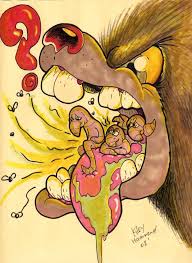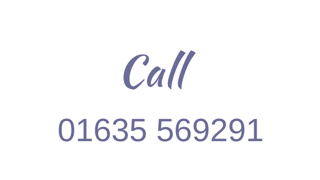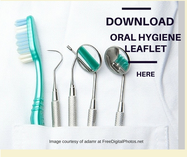W e all have suffered the confidence crushing blow of having bad breath. Though chronic bad breath may be due to a serious condition in the body, most times it’s a simple case of poor hygiene. In any event it can lead to serious anxiety. Fortunately it is often easy to fix.
e all have suffered the confidence crushing blow of having bad breath. Though chronic bad breath may be due to a serious condition in the body, most times it’s a simple case of poor hygiene. In any event it can lead to serious anxiety. Fortunately it is often easy to fix.
Do I Have Bad Breath?
Bad breath is often caused by a buildup of bacteria your mouth that causes inflammation and gives off noxious odours that smell like sulfur.
Not sure if your breath is bad? The best way to find out is to ask a trusted friend or your significant other. Because it's really hard to tell on your own.
There's another way to know. It may seem a bit gross, but look at and smell your dental floss after you use it. If your floss smells or there is blood on it, then there are foul odors in your mouth.
Why do I have bad breath?
80% of bad breath comes from an oral source. For instance, cavities or gum disease can lead to bad breath, as can tonsils that have trapped food particles; cracked fillings, and less-than-clean dentures.
Several medical conditions can also cause bad breath. They include diabetes, liver disease, respiratory tract infections, and chronic bronchitis. You'll want to see your doctor to rule out things like acid reflux, postnasal drip, and other causes of chronic dry mouth (xerostomia).
Ten Ways to Fix Bad Breath
Here are ten ways to banish bad breath - hopefully for good.
1. Brush teeth twice a day.
Brush your teeth two minutes at least twice a day to remove plaque and food debris. It’s very important to brush your teeth before going to bed.
2. Floss daily.
Flossing will remove food debris from in between the teeth that a toothbrush can't reach. If the food debris is not removed, the bacteria will begin to feed on it, causing bad breath.
3. Brush or scrape your tongue.
To remove any residue that may be building up between the taste buds and folds in the tongue, invest in an inexpensive tool called a tongue scraper. If you don’t have a tongue scraper, you can use your toothbrush to brush your tongue.
4. Use a mouth rinse.
Keep in mind that if a dental problem is the cause of chronic bad breath, a mouth rinse will only mask the odour and not cure it.
5. Visit your dentist.
The best way to make sure that you are maintaining good oral hygiene is to visit your dentist regularly. If you have chronic bad breath, you should visit your dentist first, to rule out any dental problems. Or, if your dentist believes that the problem is caused from a medical condition such as an infection, he may recommend that you visit your doctor.
6. Quit smoking and avoid tobacco products.
If you ever needed another reason to quit, here’s an easy one: smoking contributes to bad breath. Tobacco tends to dry out your mouth and can leave an unpleasant smell that lingers even after brushing your teeth.
7. Stay hydrated. If you can't brush your teeth after a meal, drinking a lot of water can help speed up the process of cleaning harmful bacteria and debris from between your teeth.
- Don't drink too much coffee. It may be tasty, but coffee is a tough smell to get off the back of your tongue.
- Chew sugarless gum. Doing so 20 minutes after a meal can help with saliva flow. Gum that's 100% xylitol-sweetened can help reduce cavities and give you really nice fresh breath.
8. Munch on a carrot, a stick of celery or an apple.
Snacks of crispy, fresh fruits and vegetables step up your saliva flow between meals to help wash away bacteria from teeth, tongue and gums that can cause bad breath. These snacks can also help alleviate bad breath caused by hunger or fasting. An empty stomach from skipping meals can cause foul breath as acids in the stomach build up.


.png?width=320&name=Request%20(1).png)

